The color of the walls in the living room: good options for home and apartment
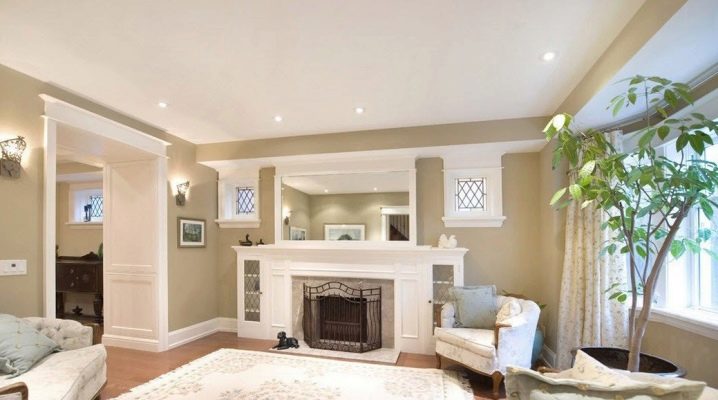
The most important room in the house is the living room, where the family spends their free time and receives guests. It should be decorated in such a way that it is warm and cozy. The first thing that catches your eye when entering a room is the walls. It is on them that the future design of the room, its mood and style depends. Therefore, it is important to choose the right finishing method and color scheme for them.
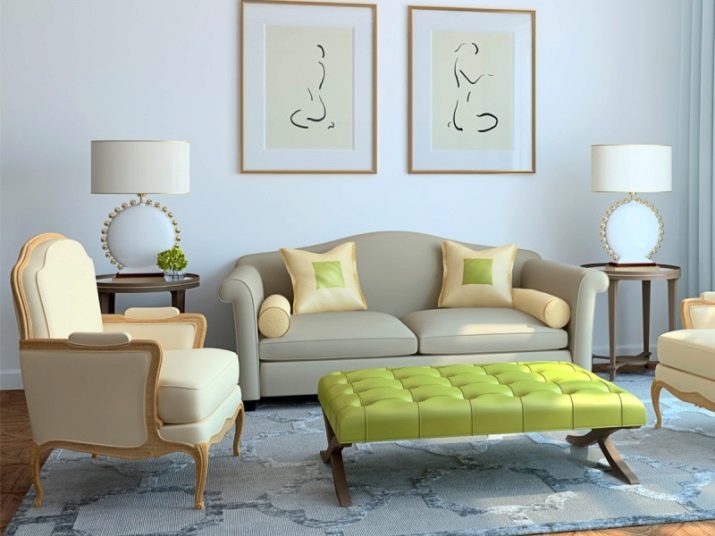
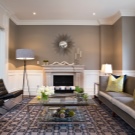
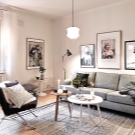
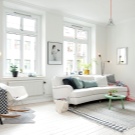
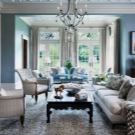
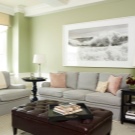
Features of the room
The living room is the face of the apartment. In it not only spend leisure time and receive guests, but sometimes work and live. The design and furnishing of this space must be done with great responsibility and care in order to fill it with an atmosphere of tranquility and comfort.
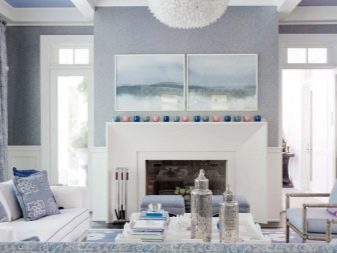
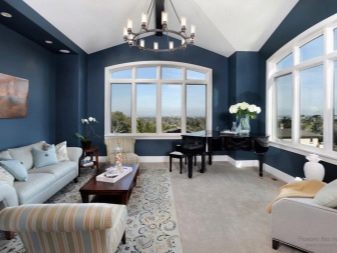
Often, the tenants of the house want to make the living room special., therefore, resort to methods of changing its functionality. Thus, it can be divided into several zones, which are designed to perform specific functions. So, the living space can serve as a kitchen, study, bedroom and playground. Depending on the size of the apartment, the number of zones can vary from 2 to 4, but some tenants manage to increase this number.
Various methods are used to divide the room. These can be partitions, screens and pieces of furniture. But the most interesting and simplest is zoning with color.
By decorating each area in a specific color scheme, you can visually divide the space without creating physical obstacles.
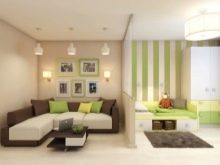
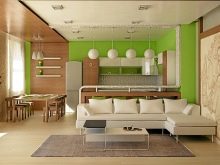
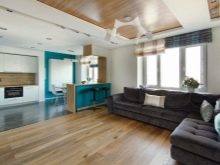
Various styles
Today the living room can be decorated in any style you like. The main thing is to know the features of the chosen direction so as not to make serious mistakes.
- Classic - this is mahogany furniture, an abundance of natural shades and the absence of artificial materials. Most often, a modern classic style is used for the design of a guest space, which values naturalness. Pictures in massive wooden frames, stucco molding and bronze decor elements are welcome as decorations. The walls should have warm pastel shades. It can be milky, beige, or pale yellow.
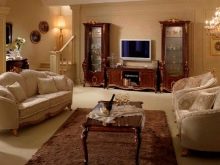
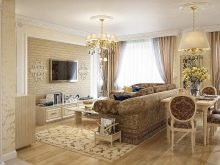
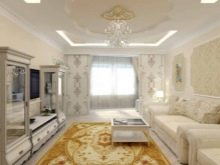
- Hi-tech style implies snow-white painting of the walls in combination with bright interior items. Metallic gloss, curtains with lurex and silver decorations help to complement the style.
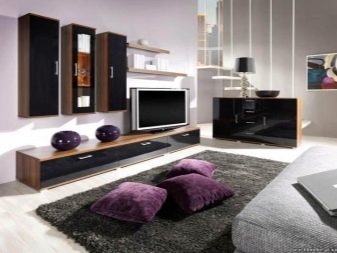
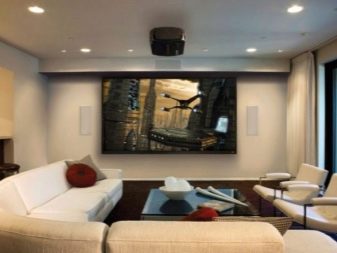
- Baroque intended for the stylistic design of large living rooms. The walls here often have three-dimensional patterns that flow smoothly into the ceiling, creating the illusion of deception. As for color, the baroque combines white and golden hues. Instead of white, it is possible to use beige or peach, but in this case, the state of the room will change.
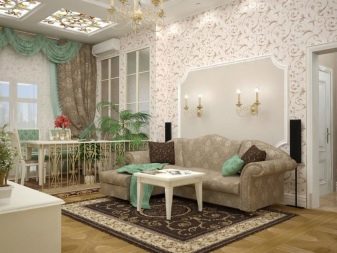
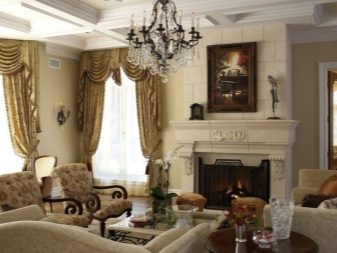
- For modern soft pastel colors are characteristic. Its furnishings combine the monotony of wall surfaces with floral designs. Walls are usually made of concrete, glass, or metal, which can be diluted with asymmetrical patterns.
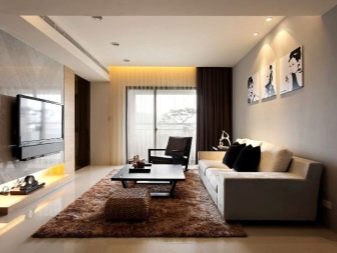
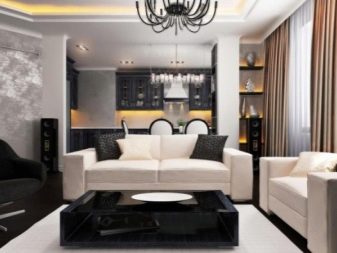
- If the style of the living room is selected country, then the design of wall coverings should consist of natural shades. Often, for wall decoration, they resort to aged decorative plaster, complementing it with variegated elements.
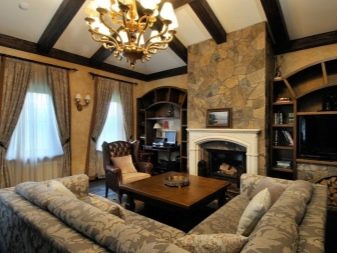
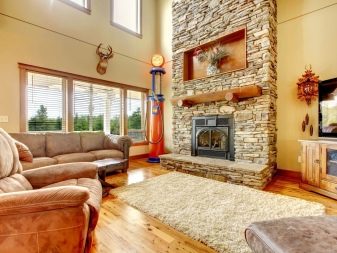
- Minimalism appreciates space, and therefore the main color for surface design should be as light as possible. The use of mirror coatings is encouraged to visually expand the space.
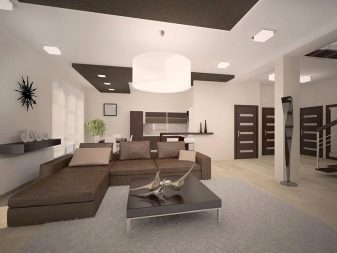
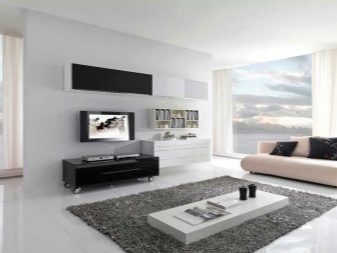
- Lilac surfaces are characteristic for romantic provence... For him, you can pick up delicate shades of pink or blue, which will help to dilute aged furniture.
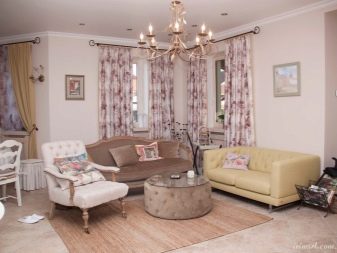
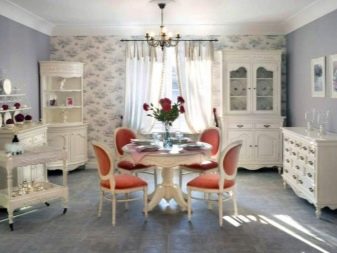
Shades
The color scheme of the walls allows you to visually adjust the parameters of the living room. Warm tones will bring wall surfaces closer, and cold ones will move them away. Saturated shades can reduce the room, while light shades, on the contrary, expand.
You can choose the color of the walls, focusing on the side of the world that the hall windows face. If the windows are on the north side, then it is necessary to use warm colors, and if on the south side, then it is better to give preference to cold light shades. Wall surfaces that face east should be painted in muted pastel shades. Western rooms are preferable to decorate in cold colors.
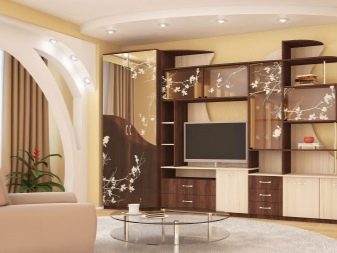
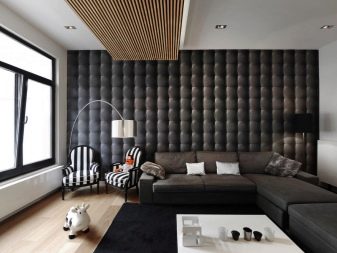
Walls painted in ordinary colors will help to add sophistication to the hall. Combined with a bright chandelier or variegated accessories, simple plain surfaces will fill with life. In this case, the walls can be blue, pistachio, blue, pink, and so on.
Orange tones refresh the space, while greens add freshness. But it is advisable to paint only one wall with bright colors so that they do not create an imbalance in the interior. For example, a black surface in combination with a dark floor and light walls will look interesting.

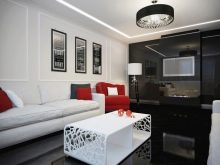
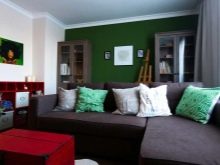
Chocolate surfaces look quite impressive. They can be decorated with turquoise furniture and white accessories.
Green, yellow, brown, olive, red, lavender, burgundy and mint colors will help to dilute the snow-white interior. White is in good harmony with any shades, so it can be combined even with khaki or ivory.
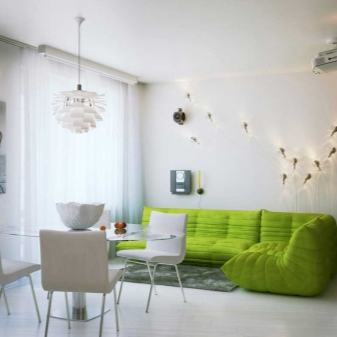
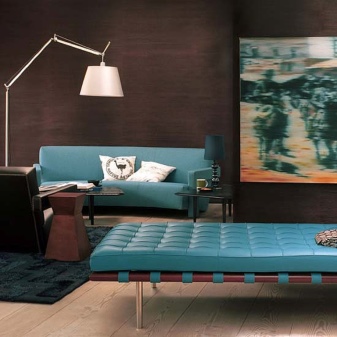
When choosing a color palette for any living room, you need to remember the rule of five shades:
- dark pieces of furniture should be on a light background;
- no more than five colors can be used within one space.
Before painting the walls, you need to check and make sure that the chosen colors will well emphasize the interior of the hall. It is necessary to think over the design of the room in advance and take into account the color scheme of all its components.
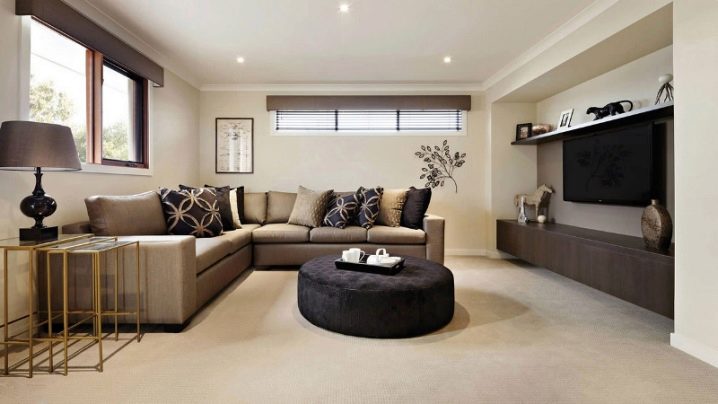
How to paint?
Renovation of the hall should begin with the preparation of all surfaces for painting or pasting. Often, water-based or oil paint is used for decorative finishes, which requires careful preparation of the walls. Even subtle defects of untreated surfaces will be very visible after painting.
To prepare the walls for staining, you need to go through several stages. First you need to remove the old coating, and then go through the plaster. Only then are the wall partitions ready for painting with enamel or paint. The final stage consists of cleaning the premises.
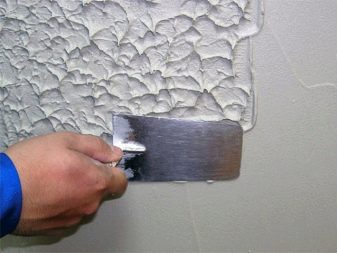

The choice of the base color of the walls should begin with taking into account the intensity of natural light, the size of window openings, the style and dimensions of the living room. The color scheme should suit all residents, so you can choose a combination of shades. For example, divide the wall into two equal parts using contrasting colors.
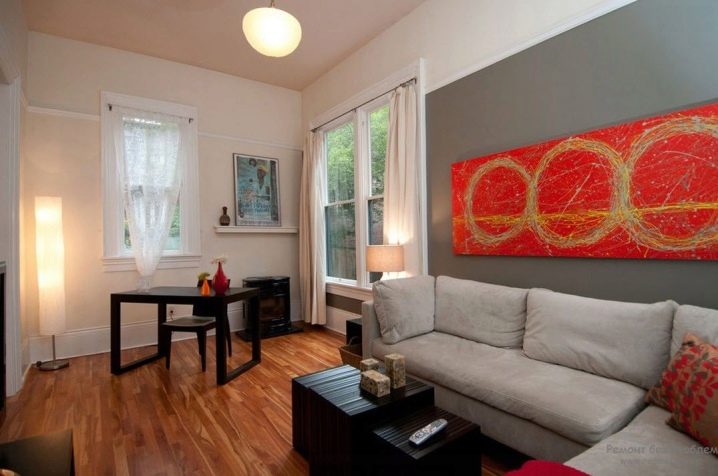
In a large room
Large and spacious living rooms do not need to be visually enlarged, so any color can be used to decorate them. These can be light shades of blue, gold, yellow, gray or green.
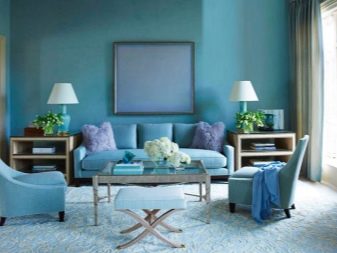
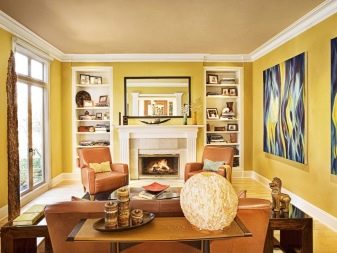
In a small room
It is better to use light colors here, which will expand the area.
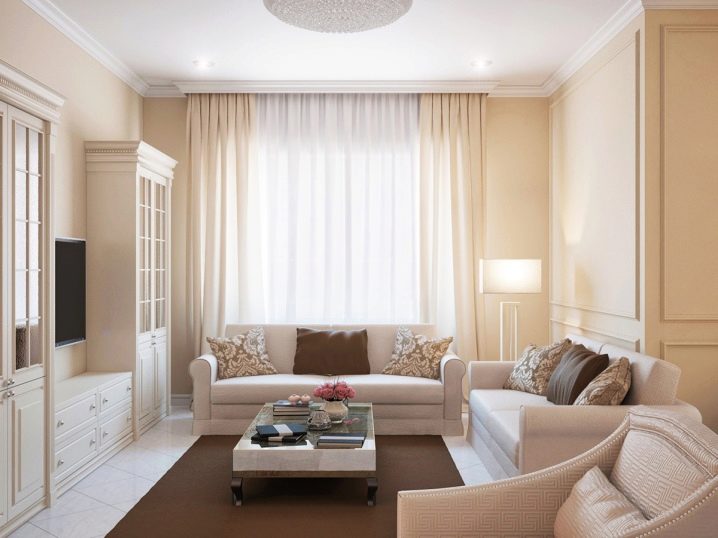
Much in wall painting depends on the zoning of the room. So, the recreation area is better perceived in calm colors, and the play area can be full of bright colors. The uniformity of surfaces can be diluted with colored elements.These can be paintings or unusual lamps.
The office should be conducive to work, so its design should consist of calm beige, brown or gray shades. The dining area looks good in light green tones, as green helps control appetite. On the other hand, red and orange walls make you want to eat.
Bluish or greenish tones can create a feeling of coolness and visually increase the space. And in order for the selected color to become especially saturated, it is necessary to use a color scheme for diluting the paint.
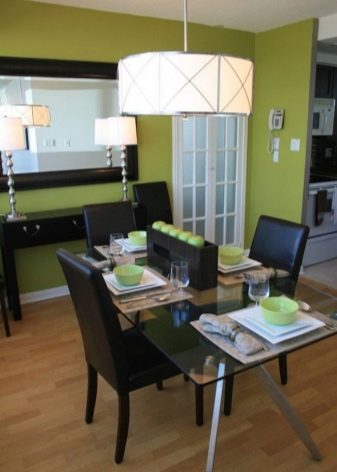
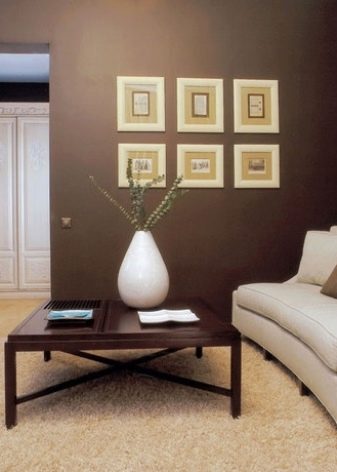
Beautiful examples in the interior
There are many interesting solutions for obtaining an original interior of the hall.
One of the most popular options is to create an accent wall. She always stands out with color and texture, since her main task is to attract attention. The emphasis is only on the surface opposite the entrance to the room. At the same time, the color of the accent part of the room always resonates with the color scheme of other interior elements.
Photo wallpaper, painting, original drawing or pattern are used as an accent. If the wallpaper layout is used for pasting the wall, then they adhere to the unity of their quality.
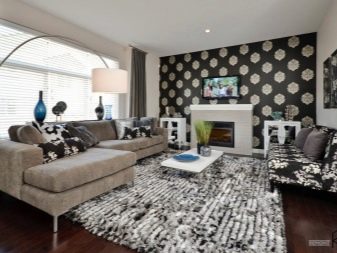
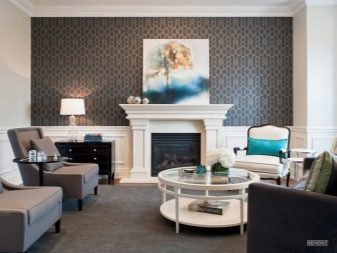
Stripes look beautiful in the interior of the hall - horizontal lines expand the area, and vertical lines visually raise the ceilings.
The wall decor above the fireplace can imitate brick or masonry. If the guest room is made in a modern style, then an imitation of metal looks appropriate.
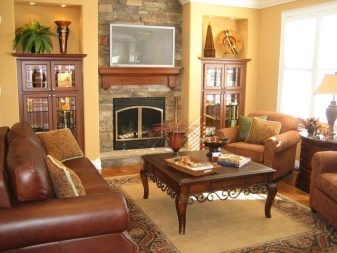
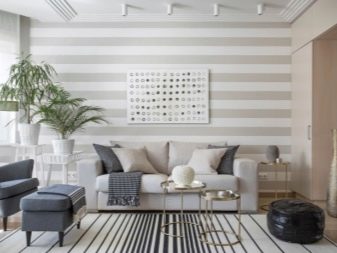
You can decorate classic wall surfaces with floral textiles or gold frames. For country and Provence, the use of rattan products or wooden wall clocks is appropriate.
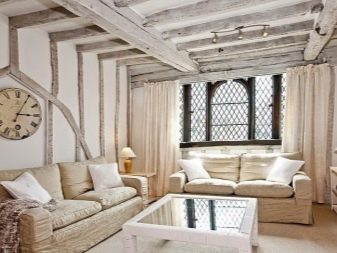
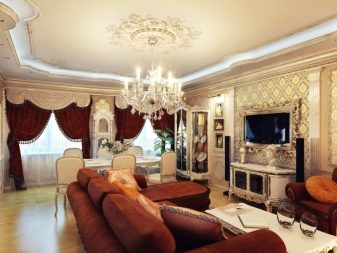
The main wall can add uniqueness to the room if it features a family tree or a large family portrait.
Decorative plaster in the hall allows you to smooth out all the irregularities, moreover, it looks impressive. Patterns created with a spatula can add sophistication.
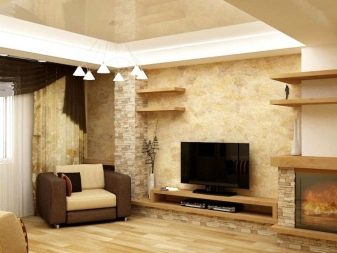
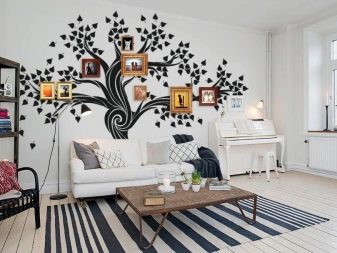
Whatever color is chosen for the decoration of the walls in the living room, it is important that it suits all residents of the house. Successful decisions are made based on personal preferences and advice from experienced designers.
For more tips on how to choose the right paint color for your walls, see the next video.













The comment was sent successfully.